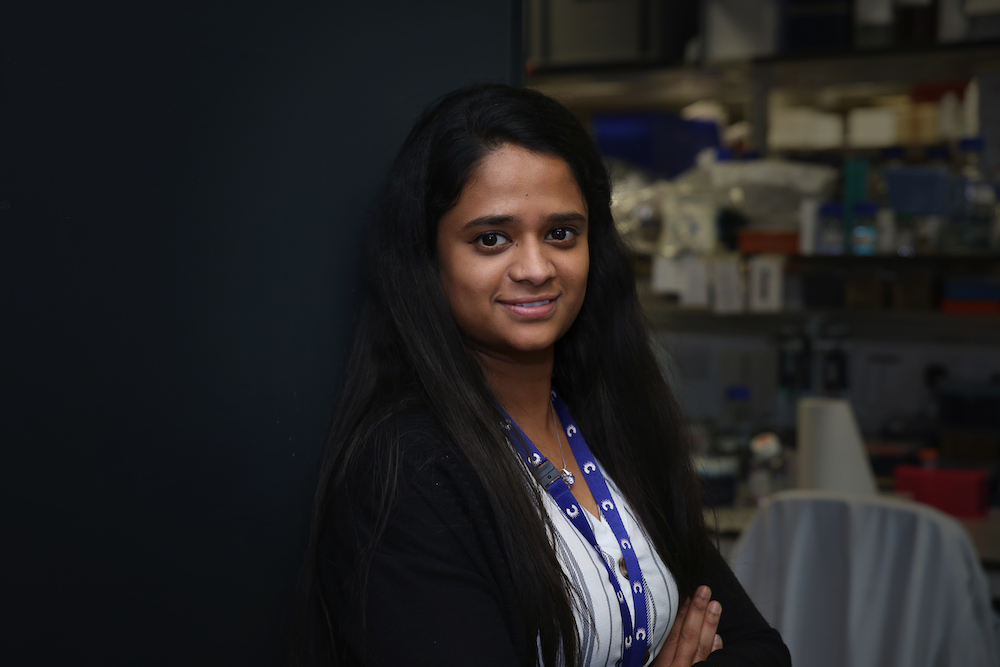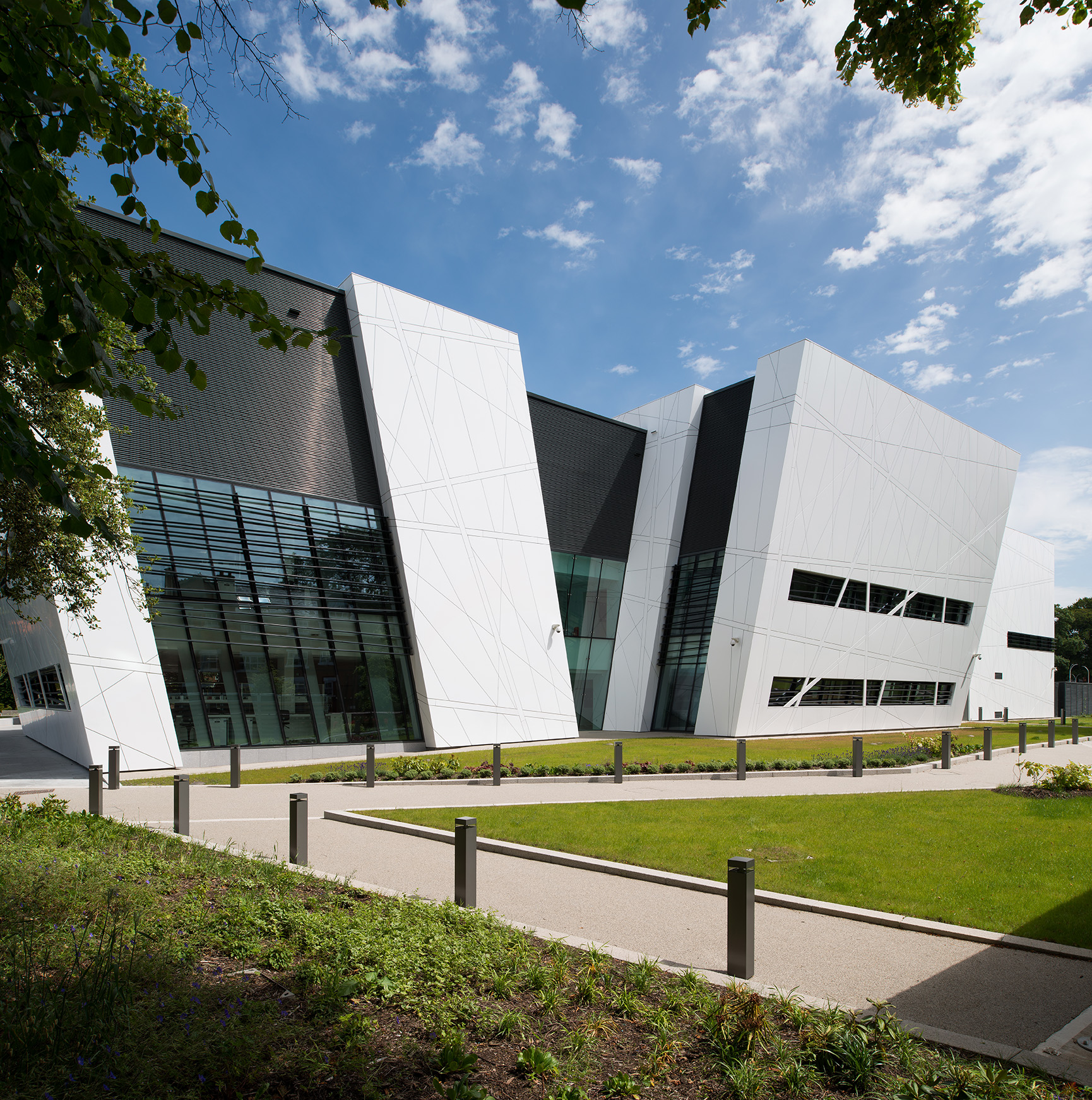Closing date: 04/04/2025
CRUK Black Leaders in Cancer Non-Clinical PhD Scholarship: Deciphering the expression of regulatory noncoding RNAs specific to metastasis in breast cancers
Lead Supervisors: Dr Sankari Nagarajan
Co-Supervisors: Prof. Robert Clarke, Prof. Andrew Sharrocks, Prof. David Wedge, Prof. Cliona Kirwan
Applications Deadline: Friday 4th April 2025
Interviews: Week commencing 28th April 2025
Non-Clinical Studentship start date: September 2025
Project Keywords: Dormancy, Breast cancer epigenetics, Chromatin remodelling
Research Opportunity: Non-Clinical Studentship leading to the award of PhD
Project Outline
Triple-negative breast cancers (TNBC) represent one of the cancers of unmet need due to their aggressive nature, as the disease spreads to other organs of the body (the process of metastasis). Metastasis is associated with important molecular changes in cancer and stromal cells, either associated with DNA sequences (genetic) or other than DNA that affect gene expression (so-called epigenetic alterations). However, current knowledge about metastasis includes evidence accumulated from in vitro-based studies on unpaired primary or metastatic tumour samples and often ignores the substantial involvement of patient-specific alterations. Thus, understanding the molecular alterations which occur during the establishment of metastasis is critical to reveal the key regulators of cancer evolution.
This project aims to understand the previously unknown metastasis-specific epigenetic reprogramming via studying the changes in the activity and expression of non-coding RNAs (enhancerRNAs, eRNAs) from gene regulatory DNA elements called enhancers on matched primary tumour and lymph node metastasised tissues from same patients. Our proposed study will explore the following:
· Identify the gene alteration profiles of the tumour samples
· investigate the metastasis-specific expression of eRNAs
· validate and assess the function and targeting of eRNAs
Importantly, our paired analysis will allow us to model a timeline of epigenetic alterations during tumour evolution, which can indicate potential causalities of these disease processes.
The proposed study will utilise a high throughput transcriptional profiling by looking into the open single stranded DNA using a technique called as Kethoxal-assisted single stranded DNA-sequencing (Kas-seq). We successfully obtained access to 15 TNBC patient samples with matched frozen material from Breast Cancer Now Tissue biobank for this study. This will be an unbiased one-of-a-kind study considering the lack of availability of frozen and paired patient material for investigating epigenetic reprogramming, emphasizing integrative pathology (one of the MCRC-CRUK Manchester Centre strategy) and personalised medicine.
Applications for this project are now open. Please complete your application on the Windsor Fellowship website.
About Dr Sankari Nagarajan (project Lead Supervisor)
Dr. Nagarajan is an internationally known breast cancer biologist working on estrogen receptor-positive breast cancer epigenetics and bioinformatics on next generation sequencing technologies. Her vision is to understand the transcriptional vulnerabilities of aggressive cancers to improve personalised therapies and to support the development and well-being of students and staffs. She sits as a council member of EACR, Breast Cancer Now biobank and grant committee, Lobular Breast Cancer UK, etc. She is a strong ambassador of cancer patient engagement and women in science. Her lab is supported by CRUK Career Establishment Award and Breast Cancer Now project grant.

Key information
Before submitting an application, please ensure you have read the information below about the funding arrangements and eligibility for Non-Clinical Studentships.
We also encourage you to get in contact with the lead supervisor to discuss the project and any particulars.
Further information is available on the Non-Clinical PhD Studentships webpage.
Our Non-Clinical PhD Studentships are usually funded for four years, with funding covering:
- Project running costs
- University tuition fees university tuition fees (at the UK rate, with some scholarships available for high-performing EU/International candidates)
- An annual stipend of £21,000 to help with living costs
Studentships are highly competitive and so we encourage you to contact any supervisors who you are interested in working with before applying for our Non- Clinical PhD Studentships.
International Candidates
The University of Manchester aims to support the most outstanding applicants from outside the UK.
We are able to offer a limited number of bursaries to high-performing EU and international candidates, covering PhD fees only. Bursaries do not include financial support for visa/health surcharges.
We assess each EU and international candidate’s suitability for a bursary at the application and interview stages.
This programme is aimed at students from Black heritage backgrounds pursuing a PhD in cancer-related fields. This scheme is open to people who self-identify as being from a Black heritage background, including a mixed background, for example: Black African, Black Caribbean, Black Other, Mixed background (to include Black African, Black Caribbean or other Black backgrounds).
The funding for this studentship covers students with UK Home tuition fee status only. However, the CRUK Manchester Centre are able to offer a number of overseas fee scholarships to candidates deemed appointable at interview. These scholarships cover fees only and do not visa costs. In exceptional circumstances, funding for the international health surcharge (for the student only and not dependents) may be made available.
The standard CRUK Manchester Centre PhD programme and studentship academic eligibility criteria are:
- A first or upper second-class honours degree (or equivalent from a non-UK university) in a relevant subject.
- Appropriate research experience as part of, or outside of, an undergraduate or masters degree course in a relevant subject.
- Appropriate English language skills.
Applications for this programme are now open. Please follow the steps below to complete your application:
Step 1: Contact the MCRC Training team to discuss your suitability for your chosen project.
Step 2: Visit the Windsor Fellowship website for further details and to log your application with them.
Step 3: Please then submit a full application for a BLiC PhD on The University of Manchester application portal.
Key dates
- Applications open: Monday 3rd March 2025
- Application deadline: Friday 4th April 2025
- Interviews: Week commencing 28th April 2025
- Start date: September 2025
Useful Links
Submit your application
Interested in applying for this opportunity? Go to the Windsor Fellowship website to submit your application.
Non-Clinical PhD Studentships
Learn more about our Non-Clinical PhD Studentships.
Get in Touch
Contact Dr Yasmin Noori Jenaghard, Postgraduate Programme Manager.
Researcher Stories
Read first-hand experiences of from cancer scientists from across Manchester.
Why Manchester?
Find out why postgraduate students choose to study in Manchester.
A Day in the Life of a Non-Clinical PhD Student
Watch our short video to see what it's like to be a Non-Clinical PhD student in Manchester.






